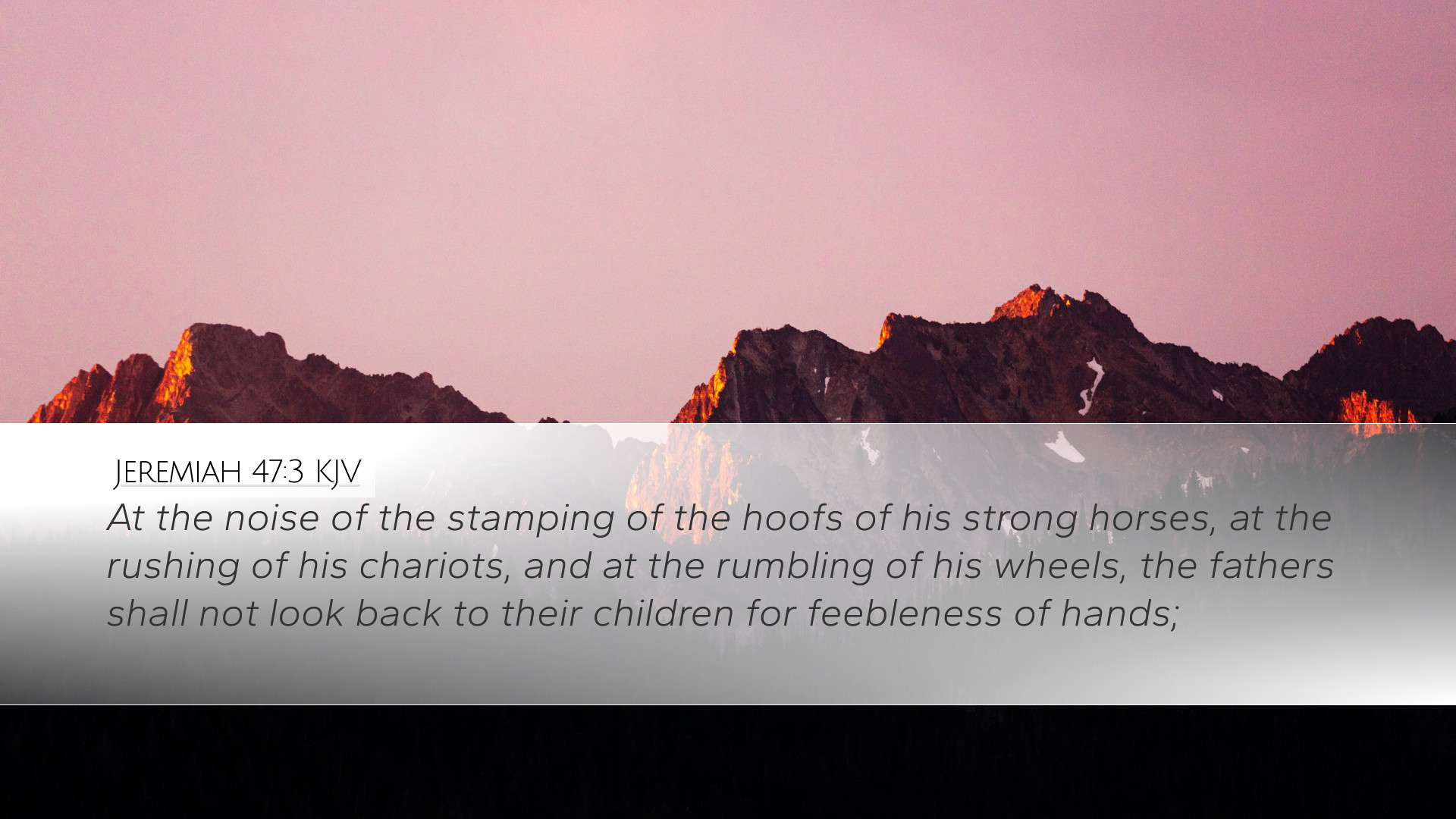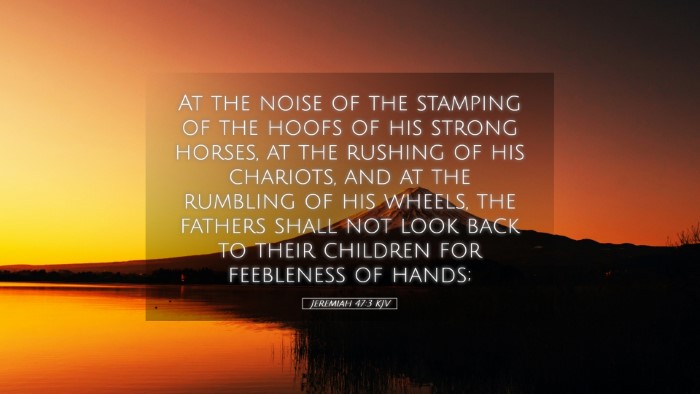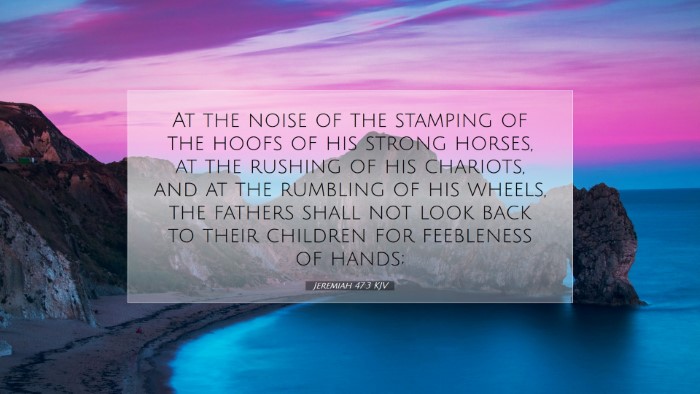Bible Commentary on Jeremiah 47:3
Verse Context: Jeremiah 47:3 states, "At the noise of the stamping of the hoofs of his strong horses, at the rushing of his chariots, and at the rumbling of his wheels, the fathers shall not look back to their children for feebleness of hands." This passage belongs to a prophetic declaration concerning the Philistines and the coming judgment upon them through the agency of Babylon.
General Overview
This verse captures the vivid imagery of impending devastation and conveys the emotional turmoil faced by parents in times of crisis. It reflects themes of judgment, helplessness, and the catastrophic impact of war.
Commentary Insights
Matthew Henry's Commentary
Matthew Henry expounds that this prophecy showcases the overwhelming sound and fury of approaching destruction that would leave families in disarray. He emphasizes the idea that the tumult of battle causes such fear and distress that parents will be unable to care for their children.
- Fear and Helplessness: Henry notes that the sound of war can be so terrifying that it distracts a father’s attention from his children, highlighting the psychological impact of war.
- Impending Judgment: The chaos represented is both a literal and figurative expression of God's judgment on the wickedness of nations, specifically targeting the Philistines.
- Call to Reflection: Henry invites readers to reflect on the societal priorities that are shattered in times of war, drawing a parallel to modern conflicts where the welfare of families is often compromised.
Albert Barnes' Notes on the Bible
Albert Barnes provides a detailed exegesis on the physical and emotional disruption caused by the impending military action. He elaborates that the imagery of "hoofs," "chariots," and "wheels" symbolizes the might of military force that will obliterate any semblance of security.
- Vivid Imagery: Barnes emphasizes that the sounds described serve to heighten the sense of dread and the violent reality of a nation under siege.
- The Role of God’s Sovereignty: He suggests that this judgment is part of a larger divine sovereign plan, indicating that such events are under God's control as part of His providential oversight of nations.
- Family Dynamics: Barnes points out the deep emotional implications for families torn apart, as the fear produced by the approaching calamity leads to a disconnection that is felt physically and spiritually.
Adam Clarke’s Commentary
Adam Clarke discusses the text with a focus on the sociopolitical implications of this prophecy and the prophetic style of Jeremiah. He underlines the universal message of despair presented through the perspective of a family caught in the turmoil of warfare.
- The Nature of Warfare: Clarke elaborates on the inevitability of conflict and its power to sever familial bonds, suggesting that when faced with cataclysmic events, instinctual survival eclipses emotional connections.
- Symbolism of Horses and Chariots: He interprets the symbols of strength (horses and chariots) as representing oppression and invincibility, forcing people into dire circumstances where survival trumps parental instinct.
- Spiritual Reflection: Clarke calls the readers to delve into the spiritual lessons found in adversity, urging them to consider how crises can lead to a reevaluation of priorities and faith.
Theological Reflections
The theological implications of Jeremiah 47:3 are profound, as it speaks to the consequences of sin, the reality of judgment, and the human condition. It evokes critical questions about our response to crisis and God's role as the sovereign arbiter of justice.
- Sin and Judgment: The context of judgment serves as a reminder of the consequences of turning away from God's commandments and the inevitable disruption that follows unrepentance.
- Human Fragility: This passage illustrates human fragility in the face of overwhelming odds, prompting readers to consider how they support and protect their families amid chaos.
- Call to Action: For pastors and theologians, there is a call to teach resilience in faith and the importance of upholding family and community ties during turbulent times.
Conclusion
Jeremiah 47:3 serves as a stark warning of the devastation that sin and human conflict can bring upon families and nations. It challenges readers—be they pastors, students, or scholars—to understand the urgency of aligning lives with God's will, fostering community ties, and preparing spiritually and practically for crises that may come.
In summary, this verse encapsulates a prophetic message that is both timely and timeless, calling for deep reflection on our priorities, spiritual readiness, and the communal responsibilities we bear toward one another in faith.


